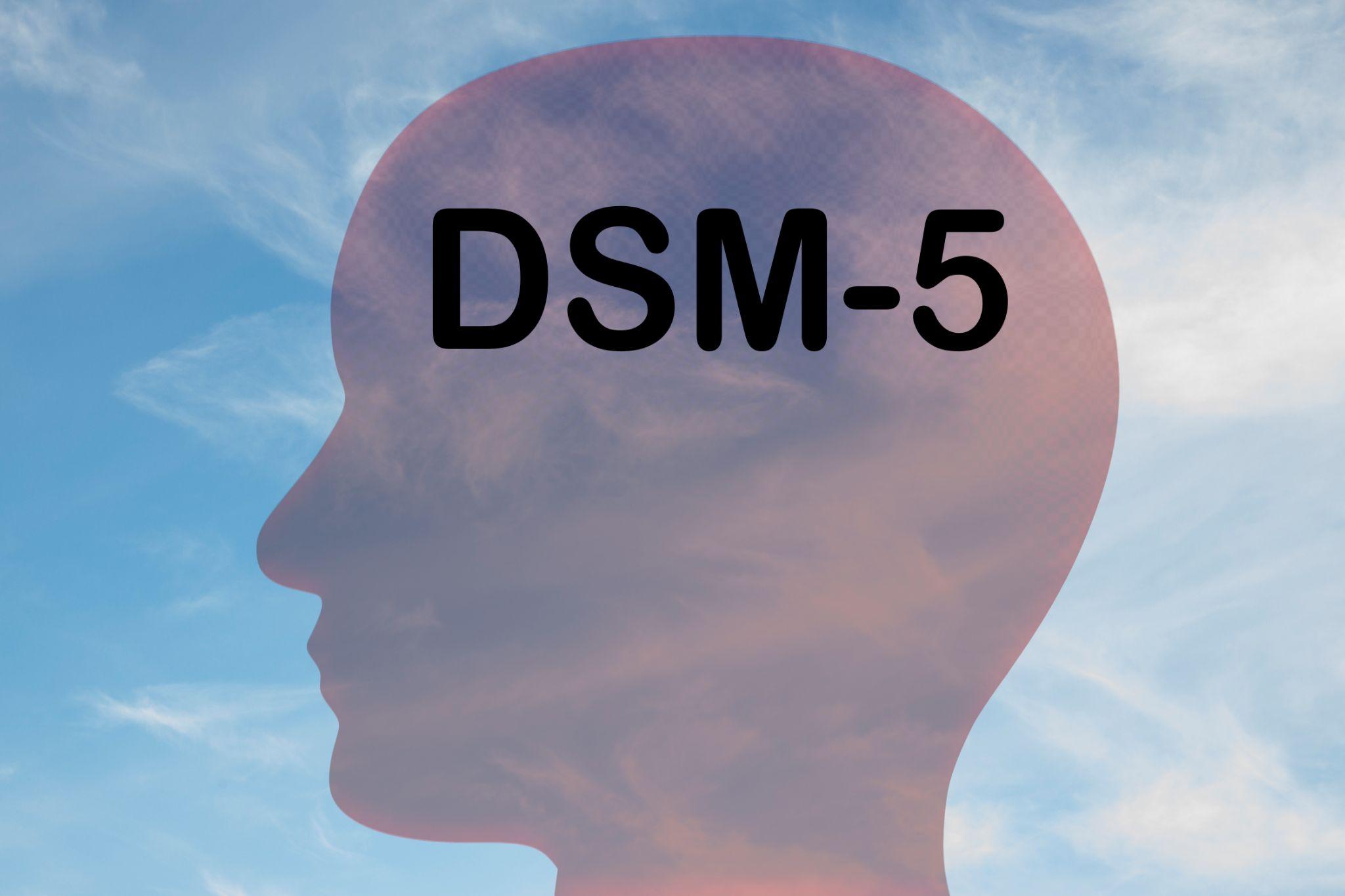
Our Addiction Resources
Navigating the world of addiction and recovery can be overwhelming. We’re here to provide clear, compassionate education and guidance. From practical advice for maintaining sobriety to informational guidance on the long-term effects of substance abuse, our content is a beacon of hope and understanding.
Our Team is Ready are ready to take your call
Call us Today!
or we can call you. Fill out form below
Our Blog

How to Stop Romanticizing Alcohol
Alcohol is often romanticized as a glamorous, exciting, or necessary part of life. This perception is often fueled by media, cultural norms, and personal experiences. When alcohol is portrayed as essential for socializing, celebrating, or relaxing, it can create unrealistic expectations and minimize the potential harms of drinking.
In culture, alcohol is frequently shown in movies, TV shows, and advertisements as a way to have fun, bond with friends, or cope with stress. For example, a popular TV show might depict characters frequently drinking at bars, laughing, and enjoying themselves without showing the negative consequences. In personal lives, people might reminisce about fun times associated with drinking, like parties or vacations, while glossing over any adverse effects they experienced.
Even for people who are already in recovery, this romanticism of alcohol can be particularly challenging. It can lead to feelings of missing out, nostalgia for past drinking experiences, or even cravings. Overcoming these perceptions is crucial for maintaining sobriety and building a healthier, more fulfilling life without alcohol.
Tips for Stopping Alcohol Romanticism
Changing how you view alcohol is crucial for maintaining sobriety. Here are ten practical tips to help you stop romanticizing alcohol and embrace a healthier, alcohol-free lifestyle.
1. Start Romanticizing Sobriety
Begin by shifting your focus from the supposed glamor of alcohol to the real benefits of sobriety. Sobriety can bring clarity, peace, and a sense of accomplishment. Imagine waking up without hangovers, remembering every detail of a night out, and feeling proud of your choices. Celebrate the milestones in your journey, no matter how small. Surround yourself with positive stories of sobriety and seek out role models who embody the joys of a sober life.
2. Focus on Your Health
Alcohol can have serious negative impacts on your physical and mental health. By focusing on these impacts, you can begin to see alcohol for what it truly is—a substance that can harm your body and mind. Reflect on how much better you feel physically and mentally since you stopped drinking. Enjoy the improvements in your energy levels, sleep patterns, and overall well-being. Regularly remind yourself of the health benefits of staying sober, such as reduced risk of diseases, better mental clarity, and improved emotional stability.
3. Live in the Moment
Romanticizing alcohol often involves idealizing the past or fantasizing about future drinking experiences. Instead, practice mindfulness and focus on the present moment. Engage fully in your current activities and appreciate the here and now. When thoughts of alcohol arise, gently bring your attention back to what you are doing at that moment. Mindfulness techniques, such as deep breathing, meditation, or yoga, can help you stay grounded and centered in the present.
4. Find New Ways to Have Fun Without Alcohol
One of the reasons alcohol romanticism happens is that people associate it with fun and socializing. To break this association, discover new, alcohol-free ways to enjoy yourself. Try activities that you’ve always been interested in but never pursued, such as hiking, painting, or dancing. Join clubs or groups that focus on hobbies like sports, book discussions, or music. Plan outings with friends that don’t involve alcohol, such as going to the movies, having picnics, or exploring new places.
5. Rediscover Your Passions
Reconnecting with your passions can provide a powerful alternative to alcohol. Think back to what you loved doing before alcohol became a significant part of your life. Perhaps it was playing an instrument, writing, cooking, or volunteering. Dive back into these activities with renewed enthusiasm. Rediscovering your passions can bring joy, fulfillment, and a sense of purpose, making the idea of drinking less appealing.
6. Build a Support System
Having a strong support system can help you stay focused on your goals. Surround yourself with people who understand and support your decision to stay sober. This could include friends, family, support groups, or a therapist. Share your struggles and successes with them, and lean on them when you need encouragement. A supportive community can provide the strength and motivation you need to resist romanticizing alcohol.

7. Educate Yourself About Alcohol
The more you know about alcohol and its effects, the less likely you are to romanticize it. Educate yourself about the physical, mental, and social consequences of drinking. Read books, watch documentaries, and attend seminars on addiction and recovery. Understanding the full impact of alcohol can help you see it in a more realistic light and reinforce your commitment to sobriety.
8. Practice Gratitude
Focusing on what you’re grateful for can shift your mindset away from romanticizing alcohol. Start a gratitude journal and regularly write down things you appreciate in your sober life. Reflect on the positive changes and the progress you’ve made. Practicing gratitude can help you develop a more positive outlook and reduce the temptation to idealize past drinking experiences.
9. Set Realistic Expectations
Recognize that sobriety, like any significant life change, comes with challenges. It’s important to set realistic expectations for your journey. Ups and downs are normal. The cultural romanticism of alcohol will continue around you, and there will always be temptations. When you encounter difficulties, remind yourself of the reasons you chose sobriety and the long-term benefits it brings.
10. Seek Professional Help
If you struggle to stop romanticizing alcohol and continue to drink, consider seeking professional help. A counselor or therapist specializing in addiction can provide valuable insights and strategies. They can help you address underlying issues that contribute to your views on alcohol and support you in developing healthier coping mechanisms.
Get Compassionate Help for Alcohol Addiction at Lumina Recovery
At Lumina Recovery, we understand the challenges of overcoming alcohol addiction and the importance of compassionate, personalized care. Our comprehensive alcohol addiction treatment services include detoxification, residential treatment, outpatient programs, and ongoing support to help you achieve and maintain sobriety. Our dedicated team of professionals is committed to guiding you through every step of your recovery journey with empathy and expertise.
Don’t let alcohol control your life any longer. Contact us now to learn more about our programs and how we can support you in your recovery.

Alcohol and Sun: Risks of Summer Drinking
Summer is a time for fun, relaxation, and social gatherings. However, it often comes with an increase in consumption of alcohol and sun. Many summer activities, such as BBQs, pool parties, and beach outings, involve drinking and being outdoors.
While enjoying these events, it is crucial to be aware of the risks associated with drinking, especially during the hot summer. Understanding these dangers and learning how to stay safe can help you have an enjoyable summer.
Six Health Problems Related to Drinking in the Sun
Drinking alcohol and spending time in the sun can put one at a higher risk for serious health problems that are often underestimated. Some key issues to be aware of include:
1. Dehydration
Alcohol reduces the amount of antidiuretic hormone (ADH) in the body, meaning it increases urine production and leads to fluid loss. When you’re out in the hot sun, your body is already losing water through sweat.
Combining this with the diuretic effect of alcohol can quickly lead to dehydration. Symptoms of dehydration include dizziness, headache, dry mouth, and extreme thirst. Severe risk of dehydration can escalate to heat exhaustion or heat stroke, both of which require immediate medical attention.1
2. Heat Exhaustion and Heat Stroke
Heat exhaustion occurs when your body overheats and can’t cool itself down properly. Symptoms include heavy sweating, weakness, confusion, nausea, and fainting.
If not treated, heat exhaustion can progress to heat stroke, a life-threatening condition where the body’s temperature rises above 104°F. Heat stroke requires emergency treatment as it can cause damage to your brain, heart, kidneys, and muscles.2
3. Increased Risk of Sunburn and Skin Damage
According to the National Institute on Alcohol Abuse and Alcoholism, people who drink alcohol while being outside in the sun are not as likely to apply sunscreen, which increases the risk of sunburn.3
Also, research suggests that alcohol decreases how much sun exposure is needed to produce burns. This is particularly concerning because repeated sunburns can increase the risk of skin cancer. To maximize your summer fun, whether you are drinking or not, always remember to apply plenty of sunscreen.3,4
4. Cardiovascular Strain
Alcohol consumption can lead to increased heart rate and blood pressure. When you add the stress of high temperatures, your cardiovascular system has to work even harder to maintain normal body functions. This can be particularly dangerous for individuals with pre-existing heart conditions.
5. Electrolyte Imbalance
Electrolytes, such as sodium and potassium, are essential for normal body functions, including muscle and nerve function. Alcohol can lead to an imbalance of these electrolytes, especially when combined with the sweating induced by hot weather. An imbalance can cause symptoms ranging from muscle cramps and fatigue to more severe conditions like seizures.2
6. Compromised Immune System
Excessive alcohol consumption can weaken your immune system, making you more susceptible to infections and illnesses. When you’re out in the sun and potentially exposed to various environmental factors, this weakened immune response can increase your risk of getting sick.
Seven Tips to Stay Healthy This Summer
Staying healthy during summer activities involves more than just moderating alcohol consumption. Here are some tips to help you enjoy the season while minimizing health risks:
1. Stay Hydrated
Drink plenty of water throughout the day, especially if you’re outdoors in the heat. Aim to drink a glass of water for every alcoholic beverage you consume to help counteract the dehydrating effects of alcohol. Carry a reusable water bottle with you to ensure you have access to water at all times.
2. Eat Regularly
Eating balanced, nutritious meals and snacks can help maintain your energy levels and reduce the impact of alcohol on your body. Include fruits and vegetables that are high in water content, such as watermelon and cucumber, to stay hydrated. Also, consider eating foods rich in electrolytes, like bananas and yogurt, to help maintain a healthy balance.
3. Take Breaks From the Sun
Seek shade or go indoors periodically to give your body a break from the heat. Wearing a hat, sunglasses, and sunscreen can also protect you from harmful UV rays. Remember to reapply sunscreen every two hours, or more often if you’re swimming or sweating.

4. Plan Alcohol-Free Activities
Engage in summer activities that do not center around drinking. Consider organizing a picnic, going for a hike, or playing sports. This can help reduce the temptation to drink excessively and provide opportunities for fun and relaxation without alcohol.
5. Be Mindful of Your Drinking
If you choose to drink, be aware of your limits and pace yourself. Avoid binge drinking, which is having four or more drinks for women and five or more drinks for men in two hours. Set a limit for yourself, stick to it, and consider alternating alcoholic drinks with non-alcoholic ones.5
6. Have a Support System
Surround yourself with friends and family who support your goal of staying healthy. Let them know your intentions and ask for their encouragement. Having a supportive group can make it easier to make healthy choices and avoid situations where you might feel pressured to drink.
7. Know When to Seek Help
If you find that you are unable to stop drinking or are concerned about your alcohol consumption, it is important to seek help. There are many resources available, including support groups and professional treatment programs, that can provide assistance. Acknowledging the need for help is a crucial step toward recovery and maintaining your health.
Find Support This Summer With Lumina Recovery
Summer can be a wonderful time to create memories and enjoy the outdoors, but it’s important to stay mindful of the risks associated with drinking. By understanding the health problems that can arise from drinking in the hot sun and following tips to stay healthy, you can have a safe and enjoyable summer.
Lumina Recovery’s alcohol addiction treatment program is ready to help at every stage of the recovery process. If you or a loved one is struggling to control your drinking, do not hesitate to seek help.
Your well-being is a priority, so take proactive steps to enjoy a safe and healthy summer. Contact us today to start your journey.
Sources:
- https://health.clevelandclinic.org/dangers-of-too-much-alcohol-summer-heat
- https://my.clevelandclinic.org/health/diseases/22111-hyperthermia
- https://www.niaaa.nih.gov/publications/brochures-and-fact-sheets/risky-drinking-can-put-chill-on-your-summer-fun
- https://pubmed.ncbi.nlm.nih.gov/23147451/
- https://www.niaaa.nih.gov/alcohol-health/overview-alcohol-consumption/moderate-binge-drinking

Summer Binge Drinking: Dangers & Avoidance Tips
Summer is a season of warmth, relaxation, and social gatherings. With longer days and plenty of sunshine, it’s a time when people often come together to celebrate, be it at BBQs, beach parties, or festivals.
However, these festivities often involve heavy drinking, which can pose significant risks for those struggling with addiction and trying to reach sobriety. Understanding the dangers of summer binge drinking and learning how to avoid these pitfalls is crucial for those or their loved ones who are worried about their alochol consumption.
Summer Activities and Heavy Drinking
It’s common to see people enjoying a cold beer or a cocktail while grilling burgers or lounging by the pool. Drinking in the summer becomes a ritual for many, with alcohol being a staple at most social gatherings. This relaxed atmosphere can lead to excessive alcohol consumption, creating an environment where binge drinking is normalized and even encouraged.
What Are the Dangers of Binge Drinking?
The dangers of binge drinking lie in its immediate and long-term health impacts. Consuming large amounts of alcohol in a short period impairs judgment, coordination, and reaction times causing acute health issues such as blackouts, alcohol poisoning, and risky behaviors.
In the long term, binge drinking can cause liver damage, cardiovascular problems, and an increased risk of developing an addiction. The danger of binge drinking is particularly high during summer events, where the combination of heat, dehydration, and alcohol can exacerbate its harmful effects.1
Furthermore, the social pressure to drink heavily can be overwhelming, making it difficult for individuals to maintain control over their alcohol consumption.
5 Tips to Avoid Heavy Drinking at Summer Events
Navigating social events during the summer without falling into heavy drinking can be challenging. Try these practical tips to help you enjoy summer gatherings while staying sober:
- Bring your own non-alcoholic drinks. To ensure you have alternatives to summer drinking, bring your own non-alcoholic beverages. This can include sparkling water, soda, or non-alcoholic beer. Having your own drinks can help you resist the temptation to consume alcohol, allowing you to stay hydrated and enjoy the event without the risks associated with heavy drinking.
- Stay busy. Engage in activities that keep you occupied and away from the bar area. Playing games, helping with the BBQ, or participating in sports can distract you from the urge to drink. Staying active not only helps you avoid drinking but also enhances your overall enjoyment of the event.
- Set a time limit. Limit the amount of time you spend at events where heavy drinking is likely. Arriving late and leaving early can reduce the time you are exposed to the temptation to drink. This strategy helps you enjoy the social aspects of the event without succumbing to the pressure of summer binge drinking.
- Have a support system. Bring a friend or family member who supports your decision to stay sober. Having someone to talk to and rely on can make it easier to resist drinking. Your support system can provide encouragement and accountability, helping you navigate social situations without compromising your health.
- Practice saying no. Be prepared to decline drink offers politely but firmly. You can say you’re driving, you’re on a health kick, or you simply don’t feel like drinking. By practicing how to say no, you can confidently uphold your boundaries and avoid the dangers of binge drinking.

The Culture of Heavy Drinking
In many cultures, heavy drinking during social events is often normalized. It’s seen as a way to relax, have fun, and bond with others. However, this normalization can mask the potential dangers of excessive alcohol consumption.
The normalization of heavy drinking also perpetuates a cycle where excessive alcohol consumption is viewed as typical behavior. This can make it difficult for individuals to recognize the severity of their drinking habits. When everyone around you is drinking heavily, it becomes challenging to acknowledge that there might be a problem with your own consumption.
This societal acceptance of binge drinking can delay seeking help for alcohol addiction, as it blurs the line between casual drinking and alcohol abuse. The binge drinking danger is often overlooked in social contexts where heavy drinking is the norm.
How to Get Help for Binge Drinking
If you find yourself unable to resist heavy drinking despite your best efforts, it’s important to seek help. There are many resources available, from support groups to professional counseling and rehabilitation programs.
Admitting that you need help is a crucial first step toward recovery. Remember, you don’t have to face this challenge alone. Reach out to friends, family, or a healthcare professional to get the support you need.
Seeking help is not a sign of weakness but a proactive step toward better health. There are numerous organizations and programs designed to support individuals struggling with alcohol addiction. These include Alcoholics Anonymous (AA), therapy sessions, and inpatient or outpatient rehab programs. These resources provide the tools and support necessary to overcome addiction and develop healthier coping mechanisms.
Professional help is particularly important for those who have developed an alcohol dependence. Rehabilitation programs offer structured environments where individuals can receive medically supervised detox and focus on recovery with the guidance of trained professionals.
Take the First Step Towards a Healthier Summer With Lumina Recovery
Summer is a time for enjoyment and relaxation, but it’s essential to be mindful of the risks associated with heavy drinking. By planning ahead, staying occupied, and having a support system, you can enjoy summer activities without jeopardizing your health. Recognize that while drinking may be normalized, it can have serious consequences.
Lumina Recovery’s alcohol addiction treatment program is equipped to help those struggling at any stage of the recovery journey from initial detox to sober living.
If you or a loved one is struggling with resisting alcohol, don’t hesitate to seek help. Your health and well-being are worth it.
Source:

Staying Present During Recovery
Recovery from addiction is a journey that can feel as much about unlearning old habits as it is about embracing new ones. For anyone walking this path, whether personally or alongside a loved one, it’s essential to understand the importance of living in the moment while in recovery.
Being present by focusing on the here and now rather than dwelling on past regrets or future anxieties can transform the recovery process. We are here to explore what it means to stay present in recovery, why it is crucial, and how to cultivate this practice.
What Does It Mean to Stay Present in Recovery?
Living in the moment while in recovery means actively focusing on the current moment without letting past experiences or future worries dominate your thoughts. This practice, often referred to as mindfulness, involves observing your current experiences, sensations, emotions, and thoughts without critical judgment.
Mindfulness in addiction recovery requires an openness to accepting things as they are at the moment, which can be challenging for those accustomed to reacting emotionally to difficult feelings or stressful situations.
In the context of mindfulness and recovery, staying present allows individuals to break the cycle of negative thinking that often leads to destructive behaviors. For instance, someone in recovery might experience a strong craving or an emotional upheaval.
By staying present and practicing mindfulness in recovery, individuals can observe these feelings without immediate reaction, recognizing them as temporary states that will pass. This moment-to-moment awareness is a powerful tool for managing the impulses and stress that can lead to relapse.
Why Is Staying Present Important in Recovery?
- Enhances self-awareness. Staying present increases self-awareness, allowing individuals to better understand their emotional triggers and habitual responses. This awareness is crucial because it provides the insight needed to change harmful patterns. For example, recognizing a tendency to use substances in response to stress leads to the development of healthier coping mechanisms.
- Reduces emotional reactivity. Individuals dealing with addiction and mental illness often experience heightened emotional reactivity. Mindfulness helps moderate this by fostering a pause between feeling an emotion and acting on it. This gap is where choice lies. It allows for more thoughtful and less impulsive decisions, which are vital in managing behaviors that might lead to relapse.
- Supports emotional healing. Many individuals in recovery carry burdens from past traumas and regrets. Staying present helps them approach these feelings without the added weight of judgment or the compulsion to escape discomfort through addictive behaviors. This approach promotes healing because it encourages acceptance, reducing the pain associated with past events over time.
- Improves stress management. Recovery is often stressful, and stress is a significant relapse trigger. Mindfulness and staying present help manage stress by enhancing one’s ability to engage with the present moment calmly and effectively. This can mean noticing when you’re becoming overwhelmed and choosing to engage in a calming activity rather than falling back on old habits.
- Fosters gratitude and enjoyment. Staying present opens up more opportunities to notice and appreciate small pleasures and achievements on a day-to-day basis. This shift in focus can significantly enhance one’s quality of life in recovery, shifting the mindset from one of deprivation to one of appreciation.
How to Stay in the Present Moment in Recovery
Exploring strategies and techniques to help individuals stay present during recovery can enhance their ability to focus on the moment and effectively manage the complexities of their journey.
1. Mindfulness Meditation
Beyond basic breathing exercises, mindfulness meditation can include guided imagery, where you visualize a peaceful place to calm your mind, or body scan meditations, where you focus on one part of the body at a time, acknowledging sensations without judgment. These practices enhance your ability to remain anchored in the present moment.
2. Grounding Techniques
Expanding on simple grounding techniques, you can use sensory engagement exercises to enhance your present-state awareness. This could involve mindful eating, where you focus intensely on the flavors, textures, and sensations of your food, or engaging in a tactile activity like gardening or knitting, which requires focus and provides immediate sensory feedback.
3. Routine and Structure
While maintaining a daily routine is beneficial, incorporating specific ‘mindfulness breaks’ can be particularly effective. These are short periods reserved for practicing mindfulness during everyday activities, such as while drinking a cup of tea or walking. The key is to perform these activities with full attention to the senses and the experience, rather than doing them automatically.

4. Reflective Journaling
To deepen the reflective practice, consider not only jotting down thoughts and emotions but also journaling about your mindful experiences throughout the day. What moments were you fully present for? What pulled you away from being present? This type of reflection can increase your awareness and control over your attention.
5. Mindful Movement
Activities such as yoga, tai chi, or gentle stretching can encourage mindfulness. These movements are performed slowly and deliberately, with attention on breath and body alignment, fostering a state of active presence that can be calming and regenerative.
6. Nature Engagement
Spending time in nature, whether it’s a walk in the park, a hike, or simply sitting in a garden, can naturally encourage present-mindedness. The sights, sounds, and smells of nature can captivate the senses, making it easier to stay in the moment.
7. Art and Creativity
Engaging in creative activities like painting, writing, or playing music can be profoundly immersive, fostering a strong focus on the present. These activities not only keep you engaged but also allow for emotional expression, which is therapeutic in itself.
Act Now for Mindful Recovery With Lumina Recovery
Staying present during recovery is about more than just avoiding relapse, it’s about building a life worth living in the moment. For those struggling with addiction and mental illness, embracing this approach can make all the difference. With each mindful moment, the path to health and happiness becomes clearer and more attainable.
Lumina Recovery takes this holistic approach to recovery by helping those with addiction and mental health issues through our dual diagnosis programs.
Reach out for support and take your first step towards a mindful recovery today.

10 Essential Sobriety Tips for Business Travelers
Traveling for business often comes with its unique set of challenges, especially for those committed to a sober lifestyle. The constant changes in environment, the social pressures of networking events, and the presence of alcohol at business dinners can all pose significant threats to one’s sobriety.
At Lumina Recovery, we aim to equip those struggling with practical tips and strategies for safe, sober travels. Whether you or a loved one wants to know how to stay sober while traveling, understanding your options is the first step.
1. Planning Ahead
Effective planning is essential in maintaining sobriety and not drinking on business trips. Begin by investigating your destination to identify local resources for support. Look for AA or other sobriety support group meetings in the area.
Additionally, plan your travel itinerary to include healthy activities like visiting a gym or a park. Knowing your schedule and the environment in advance can help you avoid unexpected triggers. If your trip involves dining out, check restaurant menus online to ensure there are appetizing non-alcoholic beverage options that will make you feel included in the social aspect of meals.
2. Setting Clear Boundaries
It’s crucial to establish boundaries and what you are comfortable with before you travel sober. Determine which events are essential and which ones you can skip. Practice ways to politely decline alcohol without feeling awkward or singled out.
If attending a gathering where alcohol is unavoidable, plan an exit strategy in case you feel uncomfortable. Having a colleague who understands your commitment to sobriety can be immensely helpful, as they can help steer group activities towards more inclusive options or provide support in difficult situations.
3. Choosing Accommodations Wisely
The environment where you stay can greatly influence your sober travel. When booking accommodations, look for hotels that promote a more serene atmosphere, such as those without a bar or nightclub on the premises.
Some hotels even cater specifically to health-conscious travelers, offering amenities like in-room fitness equipment, healthy meal options, and relaxation tools such as yoga mats. Checking reviews or calling ahead to ask about their support for guests pursuing a sober lifestyle can also be beneficial.
4. Packing Your Essentials
In addition to your usual travel essentials, pack items that help support your sobriety. This might include:
- Books or e-books on sobriety or personal growth that you find encouraging.
- Photos of friends, family, and loved ones can motivate one to focus on recovery and provide comfort.
- Non-alcoholic beverages such as specialty teas or coffees can be a treat in your hotel room and at meetings.
5. Embracing Technology
Utilize technology is a sober travel solution that keeps your recovery support close at hand. Several apps are designed to assist with sobriety by tracking your sober days, connecting you with community support, or even providing daily motivational quotes and meditations.
Apps like I Am Sober or Twenty-Four Hours a Day can offer both tracking and community features. Additionally, consider setting reminders on your phone for daily affirmations or to take breaks regularly, which can help manage stress and maintain mental clarity during your travels.
6. Scheduling Downtime
Business travel can often be hectic, but it’s crucial to carve out periods of rest to recharge both physically and mentally. Plan for quiet time in your schedule, whether it’s taking a short walk in the morning, practicing yoga in your hotel room, or simply reading a book in a calm spot. Utilize hotel amenities like a spa or sauna to relax and destress.
Prioritizing downtime is not just about resting but also about creating opportunities to engage in sober activities that nurture your well-being and reaffirm your commitment to sobriety.
7. Navigating Networking Events
Networking events are typically laden with opportunities to drink. Here are some strategies to handle such events:
- Carry a non-alcoholic drink: Always have a non-alcoholic beverage in your hand. This not only helps avoid questions about why you aren’t drinking but also physically occupies your hands and makes you feel part of the celebration.
- Buddy system: If possible, team up with another sober colleague or a supportive friend who will be at the event.
- Focus on networking: Redirect the focus from drinking to engaging in meaningful conversations. Prepare some questions and topics in advance to keep conversations flowing.
- Know your exit strategy: If you feel uncomfortable, have a polite exit strategy planned. This could be as simple as needing to make an important phone call or an early morning meeting.

8. Communicating Your Needs
If the preset itinerary is heavily focused on alcohol-centric activities, communicate your needs to the organizer discreetly and professionally. You can suggest alternative activities that are less focused on alcohol but equally engaging, such as team-building exercises or a group tour of a local attraction.
Open communication about your sobriety needs not only supports your own recovery but can also influence more inclusive planning for future corporate events.
9. Finding Alternative Activities
Actively seek out or propose alternatives to typical alcohol-driven socializing events:
- Morning meetings over coffee: These can replace late-night bar meetings and also tend to be more productive.
- Group activities: Suggest group activities that don’t revolve around drinking, such as visiting a landmark, attending a sports event, or participating in a volunteer activity.
- Dine at restaurants known for their food, not their bar: When dinners are involved, suggest restaurants renowned for their cuisine rather than their cocktails, making the meal the highlight.
10. Reflecting on Your Journey
End each day by reflecting on your journey and reaffirming your commitment to sobriety:
- Journal: Write down the successes of the day, how you navigated challenges, and any feelings or thoughts that arose. This not only serves as a record of your resilience but can also help in identifying triggers and preparing strategies to deal with them.
- Celebrate small victories: Each event you navigate soberly is a victory. Acknowledge and celebrate these to build confidence.
- Connect with your support network: Check in with your support group or a trusted friend to discuss your day. This connection can reinforce your sense of community and commitment.
Take Charge of Your Sobriety on the Road With Lumina Recovery
Traveling for business while maintaining a sober lifestyle is undoubtedly challenging, but with the right preparation and mindset, it is entirely achievable. By planning ahead, setting clear boundaries, and utilizing available resources, you can protect your sobriety and still enjoy a successful and rewarding professional life on the road.
Lumina Recovery’s specialized program for business executives is designed to help you or your loved one handle all aspects of life and work including travel.
Get in touch with our team to navigate business travel with confidence and maintain your journey of sobriety.

Mild, Medium, or Severe? DSM Criteria for Addiction
Dealing with addiction and mental illness can be overwhelming, not just for the individual experiencing it but also for their loved ones. Understanding the severity of addiction and how it is classified can significantly affect the approach to treatment and recovery.
This guide aims to explain the Diagnostic and Statistical Manual of Mental Disorders Fifth Edition (DSM-5) criteria for addiction, helping you or someone you care about to find the appropriate level of rehabilitation.
Addiction Through the DSM
Based on decades of research, the DSM-5 is a critical resource used by healthcare professionals to diagnose a range of mental health conditions, including substance use disorders (SUDs).
The DSM-5 outlines specific substance use disorder criteria to assess the presence and severity. The 11 DSM-5 substance use disorder criteria include the following:1
- Increased Usage: Individuals often consume the substance in higher quantities or for longer durations than they initially planned.
- Failed Attempts to Cut Back: There is a consistent desire or unsuccessful attempts to reduce or control the use of the substance.
- Time Consumption: A significant amount of time is devoted to acquiring, using, or recovering from the effects of the substance.
- Strong Cravings: Individuals experience a powerful and persistent urge to use the substance.
- Role Neglect: Frequent use of the substance leads to failures in meeting key responsibilities at home, work, or school.
- Social Problems: Ongoing use of the substance causes or worsens social or interpersonal issues.
- Withdrawal From Activities: There is a noticeable reduction or cessation of important social, occupational, or recreational activities due to substance use.
- Risky Use: The substance is used recurrently in situations where it poses physical hazards.
- Physical or Psychological Harm: Usage continues despite awareness of ongoing physical or psychological problems likely caused or worsened by the substance.
- Tolerance: The individual needs substantially increased amounts of the substance to achieve the desired effect or experiences significantly reduced effects from the same amount of the substance.
- Withdrawal Symptoms: Manifestations of withdrawal include either experiencing typical withdrawal symptoms associated with the substance or using the same or a similar substance to avoid or alleviate withdrawal symptoms.
Three Levels of Severity in Addiction
Based on these criteria, clinicians determine the severity of a substance use disorder by assessing the number of symptoms present:2
Mild Substance Use Disorder
A diagnosis of mild substance use disorder is made when an individual exhibits two to three symptoms listed in the DSM-5. Symptoms at this stage might include using larger amounts of a substance than intended, persistent desire to cut down, spending a lot of time obtaining the substance, or experiencing cravings. Although the impact on daily life is noticeable, it may not yet be severe.
Moderate Substance Use Disorder
Moderate substance use disorder is indicated by the presence of four to five symptoms. This level reflects greater impairment and may include recurrent substance use in physically hazardous situations, significant social or interpersonal problems caused by the effects of the substance, or neglecting major roles at home or work.
Severe Substance Use Disorder
Severe substance use disorder, commonly referred to as addiction, is diagnosed when an individual meets six or more symptoms. This stage is characterized by a loss of control over substance use, prioritizing substance use over other activities, and continued use despite knowing the harm it causes.

Choosing the Right Rehabilitation: Tailoring Treatment to Severity
Selecting the most appropriate rehabilitation option is crucial for effective recovery from SUD. The level of treatment needed largely depends on the severity of the disorder as outlined by the DSM-5 criteria. Knowing which treatment options are best suited for each level and how these can be adapted to meet individual needs is an important step toward recovery.
Treatment Options for Mild Substance Use Disorder
Outpatient Therapy: Regular sessions with a counselor or therapist focusing on behavioral modifications, substance education, and relapse prevention strategies. An outpatient setting allows individuals to maintain their daily routines, including work and family responsibilities.
Support Groups: Engagement in community support groups like Alcoholics Anonymous (AA) or Narcotics Anonymous (NA) can provide peer support and encouragement, which are vital for recovery.
Treatment Options for Moderate Substance Use Disorder
Intensive Outpatient Programs (IOP): These programs require attendance at therapy sessions several times a week, providing a higher level of support than typical outpatient services. IOPs focus on intensive therapy sessions, including group and individual counseling.
Partial Hospitalization Programs (PHP): PHPs offer a level of care similar to inpatient treatment but allow the individual to return home or to a sober living facility at night. These programs are suitable for individuals who need significant medical and psychological care but have a stable living situation.
Treatment Options for Severe Substance Use Disorder
Inpatient Rehabilitation: Inpatient programs involve living at a treatment facility for a duration ranging from 30 days to several months. Inpatient rehab provides a structured environment with medical monitoring, detox services, and intensive therapy.
Long-Term Residential Treatment: Long-term facilities offer extended care for severe cases, focusing on deep-rooted issues underlying addiction and preparing individuals for reintegration into society.
How Addiction Intake Specialists Can Help
Determining the most appropriate level of care can be challenging. This is where addiction intake specialists play a critical role. These professionals conduct comprehensive assessments that consider the number of symptoms present, the duration and severity of substance use, and other personal factors like co-occurring mental health conditions, family dynamics, and personal history of treatment.
Addiction intake specialists are skilled in evaluating all these factors to recommend the best type of treatment. They guide patients and their families through the decision-making process, explaining different treatment modalities and what to expect from each.
Their goal is to ensure that the treatment plan is not only effective in managing the addiction but also tailored to fit the unique circumstances and needs of the individual.
Start Your Customized Journey to Sobriety With Lumina Recovery
Understanding the DSM criteria for addiction severity is crucial in selecting the right path for recovery. Whether dealing with a mild, moderate, or severe substance use disorder, specialized help is available.
Lumina Recovery treats a variety of addiction types and dual diagnosis conditions to give you or your loved one a chance for a sober life. Taking the first step toward understanding where you or your loved one stands in terms of addiction severity is vital in navigating the journey to health and wellness.
Reach out today to start your personalized journey towards recovery.
Sources:

Substance Abuse in Sports: Higher Risk for Athletes
In the world of sports, where the pressure to excel is immense and the physical demands are extreme, athletes often face unique challenges that can predispose them to addiction. While they are celebrated for their extraordinary abilities and mental toughness, the very nature of competitive sports can make athletes particularly vulnerable to substance abuse.
It is essential to delve into the reasons why athletes are at a higher risk of addiction, explore the most common substances abused in the sports industry, and discuss effective treatment options tailored for athletes. Understanding the dynamics between drugs and athletes is crucial for providing the right support to those who compete, ensuring their well-being both on the field and off.
Common Drugs Abused by Athletes
Athletes often encounter a distinctive pattern of substance use, shaped by the pressures and cultures of their sports environments. The most commonly abused substances among athletes include the following:1
- Stimulants, like amphetamines and caffeine, are widely used to enhance alertness and reduce fatigue. These substances are particularly prevalent among elite athletes due to their performance-enhancing effects.
- Prescription opioids, such as oxycodone and hydrocodone, are often used for pain management following injuries. Despite their legitimate medical use, there’s a higher prevalence of athletes addicted to painkillers, largely due to the physical demands and the resultant injuries in sports.
- Smokeless tobacco products like snuff and chewing tobacco are frequently used by athletes, particularly in sports like baseball. They are often chosen for their perceived stress-reducing effects and as a less detectable alternative to smoking.
- Alcohol consumption is lower among professional athletes compared to the general public, but its use is more common in collegiate athletes. Alcohol is often used for social reasons and as a means to relax.2
- Nicotine, including both smoking and smokeless tobacco products, usage persists as a common vice among athletes, though its consumption patterns can vary by sport and athlete status.
- Cannabis is used by some athletes for its effects on pain relief and relaxation. While it’s becoming more accepted in some regions due to changing legal statuses, its use in professional sports remains controversial.
- Anabolic steroids are performance-enhancing drugs (PEDs) primarily used to increase muscle mass and strength and are more commonly reported among college athletes compared to their non-athlete counterparts, where the pressure to perform and succeed can be intense.
- Illicit drugs like cocaine and MDMA are sometimes abused by athletes for their stimulant effects that can provide a temporary boost in energy and euphoria. These drugs are used despite the significant risks they pose, including severe health impacts and the possibility of disqualification from competition.
Why Are Athletes More Prone to Addiction?
Athletes face a unique combination of pressures and circumstances that can increase their susceptibility to addiction:3
- Enhanced performance Athletes are often under immense pressure to consistently perform at the top of their game. Performance-enhancing drugs (PEDs) like anabolic steroids or stimulants not only offer a short-term solution to enhance performance but can also lead to addiction as the body becomes dependent on their effects to maintain a high level of performance.
- Pain management. The physical demands of sports frequently lead to injuries, which can result in chronic pain. Initially prescribed for valid medical reasons, the potent nature of prescription painkillers such as opioids can quickly lead athletes down the path of dependency and abuse as tolerance develops.
- Cultural norms and accessibility. In many athletic environments, there’s a prevailing culture that may normalize substance use as a means of bonding or coping with competitive stress. Athletes often have easier access to drugs through sport medicine clinics and contacts within the sports community. This accessibility reduces the barriers to obtaining substances like painkillers, muscle relaxants, and illegal drugs.
- Mental health and stress management. Athletes can experience significant mental health issues, including anxiety, depression, and stress-related disorders, stemming from the pressure to succeed and fear of failure. Mood-changing substances like alcohol, marijuana, narcotics, stimulants, depressants, and hallucinogens might be abused as a way to temporarily alleviate these mental health symptoms.2
- Recovery and downtime. During off-season or recovery periods, athletes might find themselves with an abundance of free time and fewer structured activities, which can lead to increased substance use. Drugs such as marijuana and alcohol can become tools for passing time or dealing with boredom, which can quickly turn into habitual use.

7 Treatment Options for Athletes Struggling with Addiction
When athletes struggle with addiction, tailored treatment options that consider their unique lifestyle, pressures, and physical demands are essential for effective recovery. Here are several treatment strategies and support systems that can help athletes overcome addiction:
1. Specialized Rehabilitation Programs
Rehabilitation centers that specialize in treating athletes can offer a significant advantage, as these programs understand the specific needs and triggers associated with sports environments. These centers often provide comprehensive care that includes detoxification, therapy, withdrawal symptom management, and relapse prevention strategies, all tailored to the athlete’s specific circumstances.
2. Behavioral Therapies
Cognitive behavioral therapy (CBT) is particularly effective in treating addiction due to its evidence-based practices. For athletes, CBT can help modify behavior and thought patterns related to drug use, address the underlying issues of stress management, performance anxiety, and self-esteem, and develop healthier coping mechanisms.
3. Peer Support and Group Therapy
Support groups that include other recovering athletes can provide a unique sense of community and understanding that is invaluable. These groups allow members to share experiences and recovery strategies in a supportive environment, catering to the specific needs of sports professionals. This peer-based approach helps in building solidarity and enhancing the motivation to maintain sobriety through mutual experiences and encouragement.
4. Pain Management Programs
Since pain is a common trigger for substance abuse among athletes, effective pain management programs are crucial. These programs can teach athletes non-addictive pain management techniques such as physical therapy, acupuncture, and mindfulness practices. Integrating medical and therapeutic approaches to manage pain can significantly reduce the reliance on prescription painkillers.
5. Mental Health Support
Addressing co-occurring mental health disorders such as depression or anxiety is critical in the treatment of addiction. Mental health professionals who have experience working with athletes can provide tailored therapy and, if necessary, medication management to treat these underlying issues comprehensively.
6. Holistic Approaches
Incorporating holistic treatments like yoga, meditation, and nutrition counseling can help improve overall well-being and resilience against stress, which is particularly beneficial for athletes. These practices not only support physical health but also enhance mental and emotional balance, aiding in long-term recovery.
7. Aftercare and Relapse Prevention
After completing a treatment program, ongoing support is vital for maintaining sobriety. Aftercare programs might include regular check-ins with a counselor, continued peer support meetings, and ongoing participation in mental health therapies. Developing a strong relapse prevention plan that includes strategies to handle high-pressure situations, injuries, and the off-season can provide athletes with the tools they need to sustain their recovery.
Score Tailored Addiction Treatment for Athletes With Lumina Recovery
Athletes are often admired for their physical capabilities and mental toughness, but they are not immune to the struggles that can lead to addiction. Understanding these risks is crucial for athletes, coaches, and healthcare providers to develop effective prevention and treatment strategies.
Lumina Recovery provides specialized addiction treatment programs for athletes needing help with a variety of addictions including but not limited to alcohol, opioids, cocaine, and prescription drugs. Remember, asking for help is a sign of strength, not weakness.
If you’re an athlete struggling with addiction or know a loved one that is, reach out today to get the specialized support needed.
Sources:

The Link Between OCD and Addiction
Obsessive-compulsive disorder (OCD) is a mental health condition marked by repeated and unwanted thoughts, urges, or obsessions that make individuals feel compelled to perform certain actions repetitively.
These behaviors are attempts to provide temporary relief and ease the distress caused by the obsessions. For individuals with OCD, the compulsion to engage in these behaviors is not a matter of choice but a perceived necessity to prevent perceived disastrous outcomes.
For people with OCD and those around them, the struggles extend beyond the anxiety-inducing rituals and persistent intrusive thoughts characteristic of OCD. Often, these challenges can intersect with substance use disorders (SUDs).
This connection, though complex, highlights the intricate ways mental health issues can intertwine, amplifying distress and complicating recovery paths. Understanding what the link between OCD and addiction involves is crucial, not only for those directly affected but also for loved ones.
Contributing Factors in OCD and SUD Development
Knowing the factors that contribute to the development of both OCD and substance abuse is crucial for effective treatment. These disorders often stem from a mix of genetic, environmental, and neurological factors, which can make them complex to diagnose and treat:1
- Genetic and environmental influences. Having a family history of OCD or SUD can significantly raise the risk of developing these conditions. The influence from a family can be genetic, pointing to hereditary factors. Environmental and cultural factors shared within families can also play a significant role.
For example, growing up in a home where compulsive and addictive behaviors or substance use is common, can shape a person’s coping mechanisms and behaviors.
- Insights from neuroscience. Advances in neuroscience have highlighted how brain chemistry plays a role in both OCD and SUDs. Research shows that irregular levels of certain neurotransmitters, such as glutamate, are found in individuals with these disorders. This suggests a potential link to the symptoms experienced in both OCD and SUDs. However, it’s still unclear whether these abnormalities are a cause or an effect of the disorders.
Dopamine, a neurotransmitter linked with reward and motivation, is known to affect behavior control, which is crucial in both OCD and SUDs. An imbalance in dopamine can lead to a loss of control over behaviors, a common feature in both disorders.
- The role of the prefrontal cortex. Research has also focused on the prefrontal cortex, a part of the brain important for decision-making and controlling behavior. Changes in this area have been observed in people with either OCD or SUD, impacting their ability to control repetitive behaviors, despite understanding the negative consequences.

The Importance of Dual Diagnosis Treatment for OCD and Addiction
When someone struggles with both OCD and SUD, they face two challenging conditions that can significantly affect their mental health and quality of life.
Reports indicate that less than half of the individuals with both OCD and SUDs actively seek treatment for their OCD. Treating only one condition while neglecting the other can lead to incomplete recovery and a higher risk of relapse.2
This is why dual diagnosis treatment programs, which address both disorders simultaneously, are necessary.
Comprehensive Approach
Dual diagnosis treatment centers offer a comprehensive approach that is tailored to the individual needs of each person. This type of treatment recognizes that both OCD and addiction influence each other and must be treated together.
For instance, the anxiety and stress from OCD can drive a person to use drugs or alcohol as a way to cope. On the other hand, substance use can worsen OCD symptoms, making them more severe and harder to manage.
Tailored Therapies
Effective dual diagnosis programs typically combine several types of therapy. Cognitive behavioral therapy (CBT) is often used in addiction treatment to help individuals understand and change their thought patterns that lead to both obsessive-compulsive behaviors and substance use.
Medication Management
In some cases, medication is an important part of treatment. Medications can help manage OCD symptoms, treat withdrawal symptoms from substances, reduce cravings, and stabilize mood.
It’s important that medication use is carefully monitored by a professional who understands how to treat both conditions together.
Support Systems
Support from therapists, support groups, and family is essential in dual diagnosis treatment. These support systems provide encouragement, understanding, and accountability, all of which are vital for someone dealing with two interlinked disorders. Learning how to build and rely on a healthy support network can significantly improve the chances of recovery.
Long-Term Management
Dual diagnosis treatment also focuses on long-term strategies to manage both OCD and addiction. This includes developing healthy coping skills, understanding triggers for both disorders, and making lifestyle changes that support overall well-being and recovery.
Dual diagnosis treatment is essential for individuals facing the dual challenges of OCD and addiction. It provides a more effective, thorough, and compassionate approach to treatment that acknowledges the complexity of co-occurring disorders, ultimately leading to a better chance for a full recovery and a healthier life.
Take Charge of Your Recovery Journey With Lumina Recovery
Recognizing and addressing the complex relationship between OCD and addiction is essential for effective treatment and lasting recovery. Dual diagnosis treatment offers a comprehensive and integrated approach, tackling both disorders simultaneously with tailored therapies, medication management, and supportive networks.
Lumina Recovery practices a holistic approach for addiction treatment programs and dual diagnosis rehab, giving individuals a better chance of managing their symptoms, overcoming their challenges, and reclaiming their lives.
If you or a loved one are struggling with the intertwined challenges of OCD and addiction, don’t hesitate to reach out today for help and start on the path to recovery. It’s time to take charge of your health and embrace a brighter future.
Sources:

How to Navigate Schizophrenia and Addiction
Dealing with schizophrenia coupled with addiction presents a unique set of challenges, both for individuals experiencing these conditions and their loved ones. Schizophrenia, a chronic mental illness characterized by symptoms like hallucinations, delusions, and disorganized thinking, can severely impact a person’s ability to function daily.
When addiction is also present, managing these conditions becomes doubly challenging. This dual diagnosis of schizophrenia and substance abuse requires a nuanced understanding and a specialized approach to treatment and support.
Lumina Recovery understands the intricate relationship between schizophrenia and addiction, and our goal is to explore the underlying factors contributing to this multilayered challenge and offer guidance on seeking effective dual diagnosis treatment.
The Connection Between Schizophrenia and Addiction
The relationship between schizophrenia and substance use disorders is notably complex and marked by high co-occurrence rates.
Statistics indicate that about 47% of individuals with schizophrenia also struggle with alcohol or drug abuse, compared to just 16% of the general population.1
This significant disparity points to a deeper, intertwined connection between schizophrenia and substance use disorders, one that transcends coincidence.
Biological and Genetic Links
Studies show that schizophrenia and substance use may share common biological pathways. For instance, drug use and schizophrenia both involve changes in brain circuits, particularly those related to reward and pleasure.2,3
People diagnosed with schizophrenia often experience alterations in these circuits, which may heighten the allure of substance use as a temporary relief from their symptoms. Substances like nicotine are found to be particularly gratifying due to these altered neural pathways.
From a genetic perspective, both schizophrenia and substance use disorders tend to run in families, suggesting a hereditary component to their connection. Genetic predispositions toward schizophrenia can be activated by stressors such as heavy substance use, potentially leading to the development of the disorder.2
Psychological and Social Self-Medication
Many experts believe that individuals with schizophrenia may use drugs as a form of self-medication in an attempt to alleviate various negative symptoms of schizophrenia.
Symptoms of schizophrenia, such as hallucinations, delusions, impaired thinking, difficulties in social functioning, challenges in managing relationships, or coping with the demands of work can significantly create a fertile ground for addiction.
Nicotine has been shown to help some people with schizophrenia manage not only the symptoms of their condition but also the side effects of their antipsychotic medications.2,4
Early Substance Use and Trauma
Interestingly, substance use disorders can precede the onset of schizophrenia symptoms. Heavy drug or alcohol use during adolescence might increase the likelihood of developing psychotic symptoms later in life.2
This relationship highlights the potential for early intervention in substance use as a means to possibly prevent or mitigate the severity of later schizophrenia.
Childhood trauma is another significant factor that can intertwine with genetic predispositions to trigger schizophrenia. Traumatic experiences and environmental factors can alter brain chemistry and structure, potentially laying the groundwork for both schizophrenia and substance use disorders.2
The interaction of these factors makes pinpointing causality challenging but underscores the need for a holistic approach to treatment that addresses both genetic and environmental influences.

The Importance of Dual Diagnosis Treatment for Schizophrenia and Addiction
Dual diagnosis rehab is crucial for people with both schizophrenia and substance use disorder. This approach is vital because treating just one condition can lead to poor results and a higher chance of relapse. Dual diagnosis treatment programs provide coordinated care that addresses both conditions at the same time, offering a more comprehensive approach to recovery.
Integrated Treatment Approach
The integrated treatment approach combines mental health care for schizophrenia with therapy for substance abuse. This coordinated plan aims to tackle both disorders together. Here are some important parts of dual diagnosis treatment:
- Medication Management: Effective treatment often includes medications for schizophrenia symptoms, such as antipsychotics, along with those that help control substance cravings and withdrawal. Health professionals carefully manage these medications to avoid negative interactions and ensure the treatments are effective for both conditions.
- Psychotherapy: Therapy is a key part of treating dual diagnosis. Cognitive behavioral therapy (CBT) and other methods help individuals change harmful thoughts and behaviors linked to both schizophrenia and substance abuse. Therapies like motivational interviewing and supportive therapy also play vital roles by boosting motivation and providing emotional support.
- Family Therapy and Education: Teaching family members about dual diagnosis and involving them in therapy can significantly improve treatment outcomes. Family therapy helps to mend and strengthen family relationships, providing crucial support needed for recovery.
- Peer Support and Group Therapy: Group therapy offers a chance to share experiences and coping strategies with others facing similar challenges. This support can lessen feelings of loneliness and build a community of understanding among individuals with dual diagnoses.
- Case Management and Support Services: Case management helps individuals manage their treatment complexities, ensuring they receive proper health care, social support, and rehabilitation. Support services may include assistance with housing, employment, and accessing community resources, which are crucial for overall stability and recovery.
Tailoring Treatment to Individual Needs
Since schizophrenia and addiction vary widely among individuals, dual diagnosis treatment must be personalized. Treatment plans should consider the severity of symptoms, the type of substances used, and individual health needs.
This approach ensures that all aspects of a person’s condition are addressed. Continuous assessment and adjustment of treatment plans are necessary to respond to changing needs over time.
Take the First Step Towards a Healthier Tomorrow With Lumina Recovery
Dealing with schizophrenia in conjunction with addiction is undoubtedly complex, but it is not insurmountable. Understanding the intricate relationship between the two conditions is essential for effective treatment and recovery. By addressing both schizophrenia and addiction together, through integrated treatment programs, individuals can receive the comprehensive care they need.
Lumina Recovery has dual diagnosis treatment centers specializing in different mental health disorders and addiction types to fit the unique needs of each patient. Whether you are battling these conditions or are a loved one seeking help, know that resources are available and recovery is possible.
Reach out to our team to discuss dual diagnosis treatment options today.
Sources:
Additional Resources
Once you have completed your rehabilitation program at one of our drug and alcohol treatment centers, you should try to surround yourself with people who can encourage you to stay sober. Many people find that support groups are the best source of encouragement. You can find hundreds of support groups and meetings in your community. Our drug addiction treatment centers stress the importance of personal chemical dependency resources, especially when you are new to sobriety. Below are various addiction and mental health resources for people in recovery who want additional support.
Christian Addiction Recovery Resources
Our substance abuse services aren’t limited to specific programs, but rather we believe in the importance of incorporating faith-based programs to promote spiritual healing, like our Faith in Recovery program.
With that said, below are some faith-based addiction recovery resources that could help you in your spiritual healing from addiction:
- Battlefield of the Mind by Joyce Meyer
- Boundaries by Dr. Henry Cloud & Dr. John Townsend
- Christian Families in Recovery: A Guide for Addiction, Recovery, and Intervention Using God’s Tools of Redemption by Robert and Stephanie Tucker
- Club New Life Christian Ministry for Addiction and Recovery
- Lost & Found: Recovery in Christ by Bruce Stanley
- Overcoming Emotional Obstacles through Faith: Navigating the Mind Field by Anthony Acampora, Director of Banyan’s Faith in Recovery Program
- The Case for Christ by Lee Strobel
Mental Health Resources for Recovery
Lumina Recovery consist of both mental health and substance abuse treatment facilities, meaning we offer mental health resources as well as chemical dependency resources. What’s more, addiction often co-occurs with mental illness, making these resources ever more important.
Below are some resources for mental health recovery that can help you or your loved one:
- This Emotional Life video series
- No Kidding, Me 2!! with Joe Pantoliano
- Dare: The New Way to End Anxiety and Stop Panic Attacks by Barry McDonagh
- Pleasure Unwoven: An Explanation of the Brain Disease of Addiction by Kevin McCauley
- Declutter Your Mind: How to Stop Worrying, Relieve Anxiety, and Eliminate Negative Thinking by S.J. Scott and Barrie Davenport
Call Us Today – (877) 716-7515

